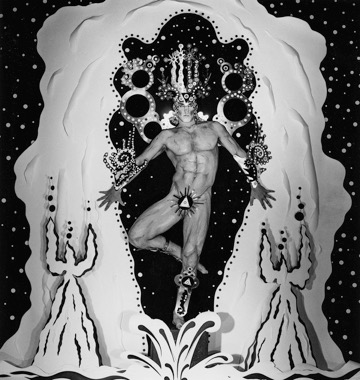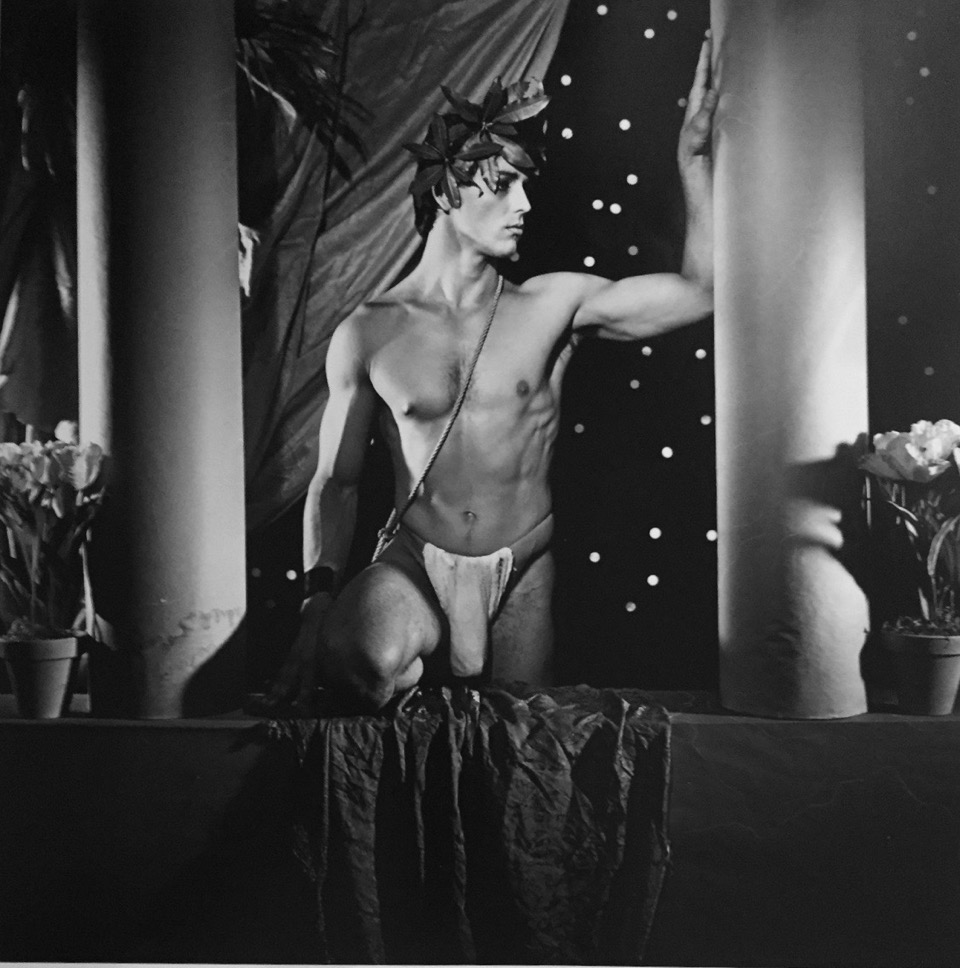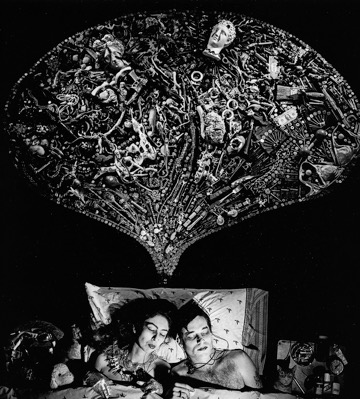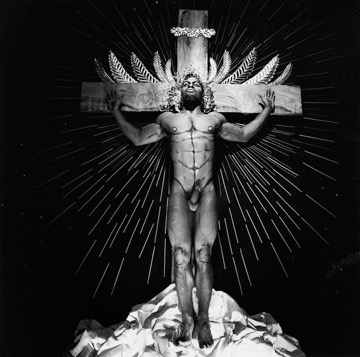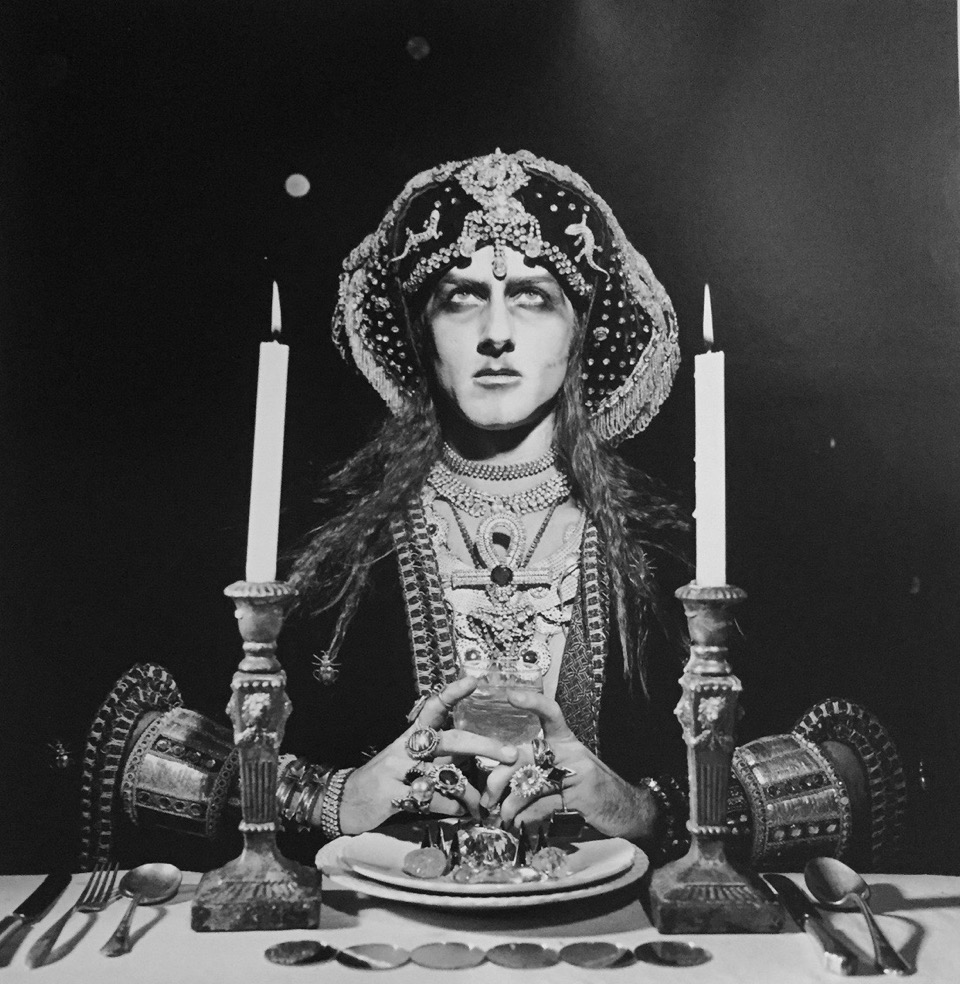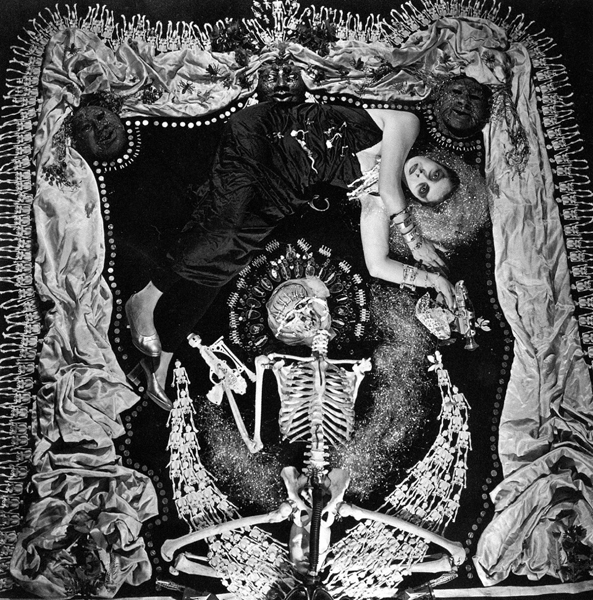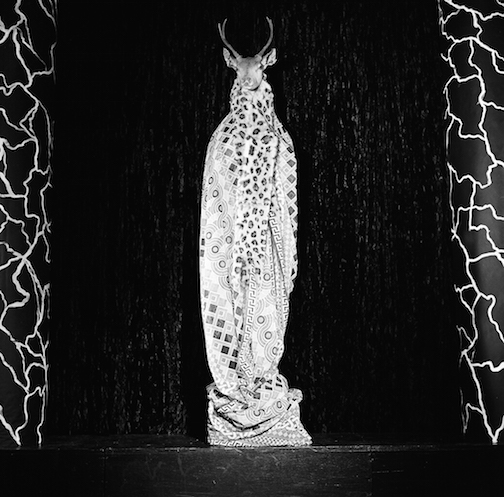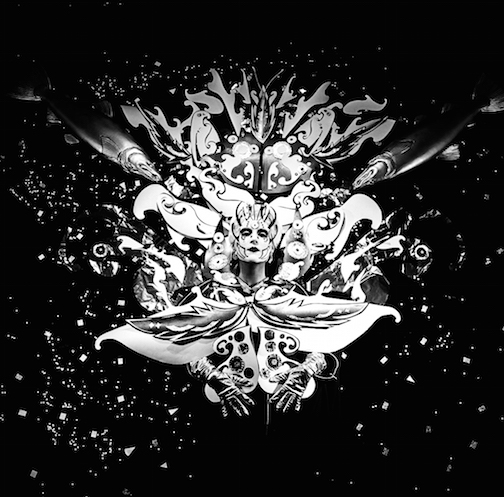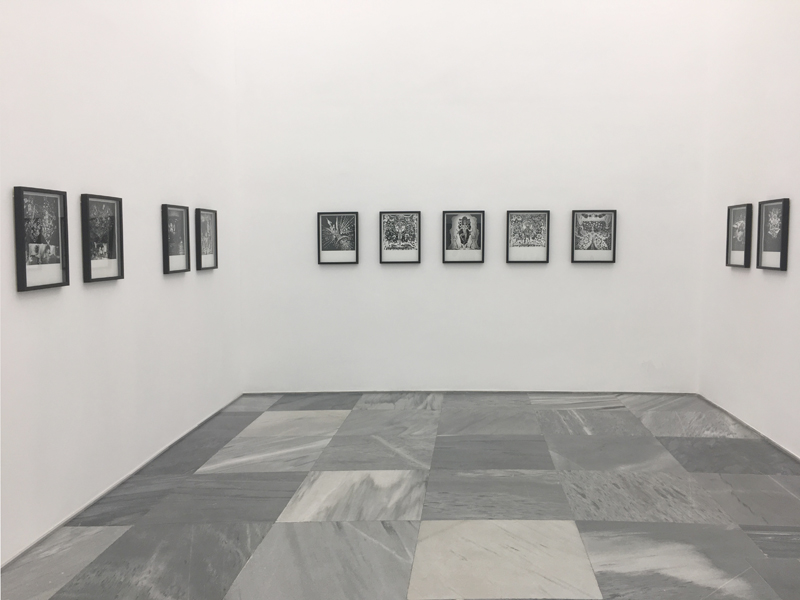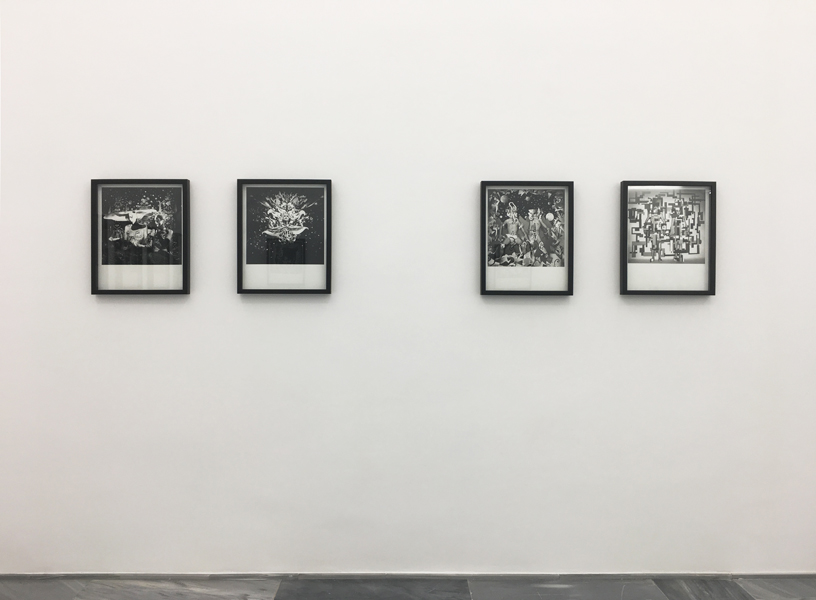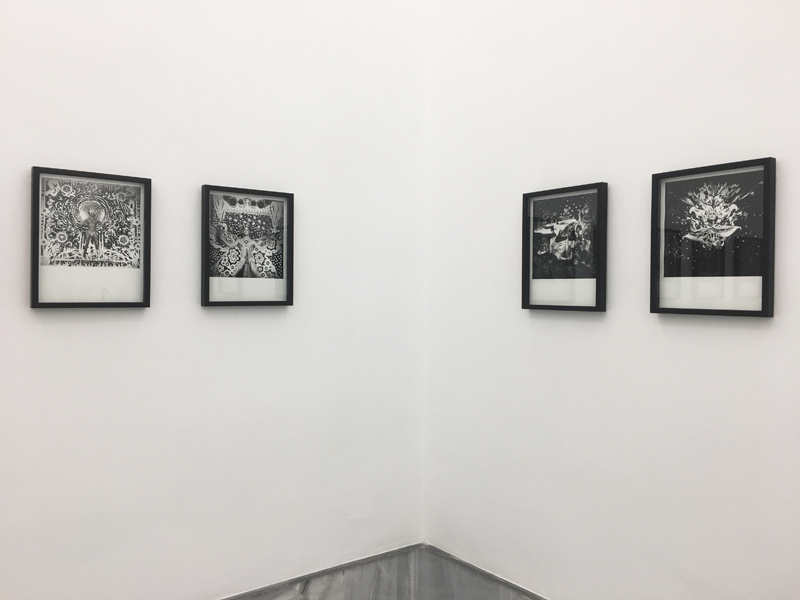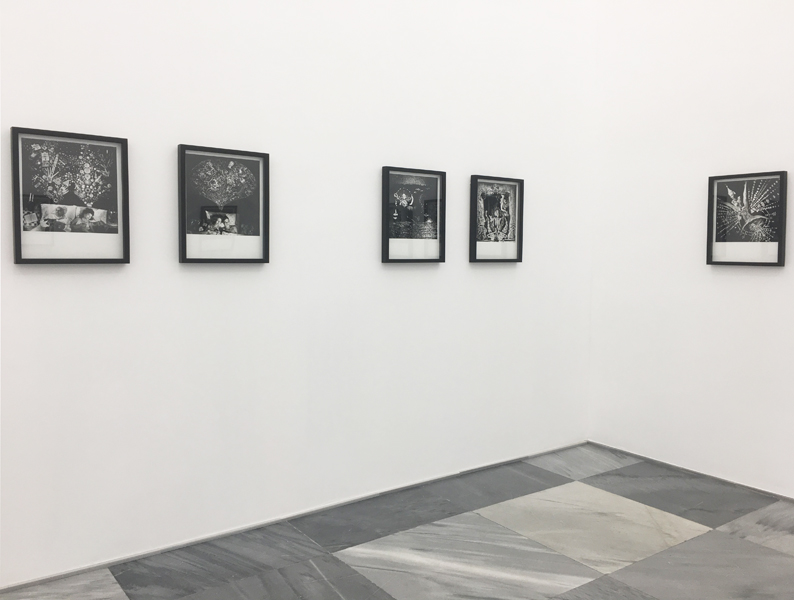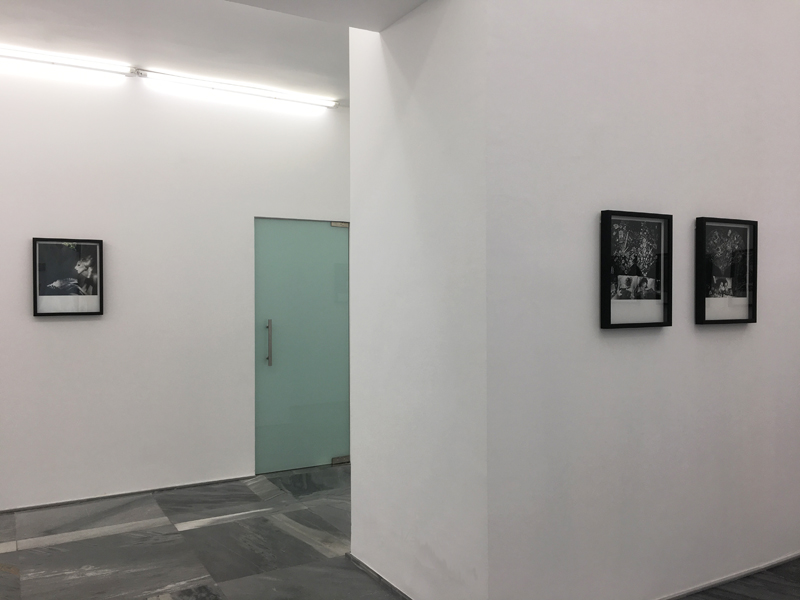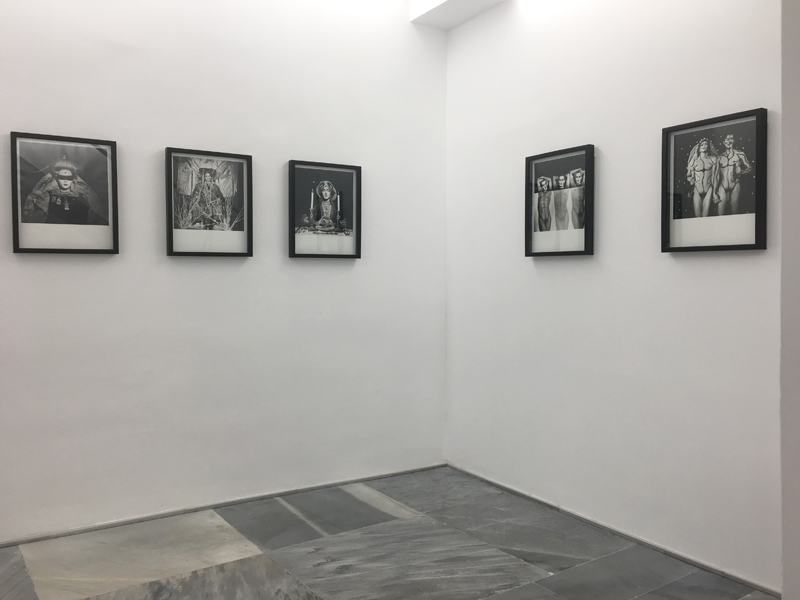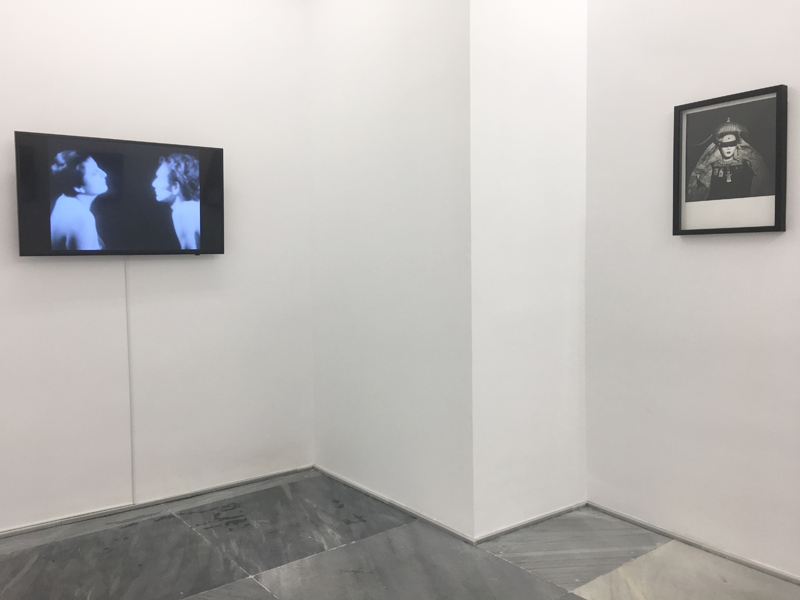Steven Arnold .- Revelations
26/May/2018 - 27/Jul/2018

Espacio Minimo gallery, as it did with other past exhibitions such as Tom of Finland or James Bidgood in previous seasons, puts its attention on this occasion in another of the most important, and at the same time most forgotten, references of the queer culture of the last decades of the last century, STEVEN ARNOLD. One of the most unique representatives of visual creation on the West Coast of the United States, and one of the most influential in subsequent generations. Revelations is the title of this exhibition, the first one in Spain, which brings together photographic works made in the 80s and early 90s and the screening of some of his most iconic films of the 70s.
Since he was young he was interested in the world of show business and scenery – at the age of four or five years old he found a trunk of disguises in the attic of his house with which he began to create costumes, stages and puppets that allowed him to explore creativity and fantasy-. He was graduated from the San Francisco Institute of Arts, completing his studies in Paris, after which he began his artistic career with films such as Luminous Procuress or Messages, Messages, both currently shown at the exhibition.
In the early 70s, Salvador Dalí saw the film Luminous Procuress and, fascinated by his talent, made him his protege, and invited him to travel to Spain in 1974 to study with the surrealist artist to help him to build the Dalí Museum in Figueres. Dalí counted on his collaboration for the inauguration.
In the 80’s, ARNOLD celebrated night parties, real happenings, at the old pretzel factory in Los Angeles, which he called Zanzibar Studios, the name of a papier-mache head that he found when he was a teenager. While working, the most varied people, representatives or interested from all fields of creation, went to the “palace of ornamentation and creative energy” to drink and socialize.
From 1982 to 1989, ARNOLD found its place designing, photographing and filming delirious tableaux-vivants, leaving thousands of photographs and negatives of those unpublished lively paintings, original and renewed surrealist recreations, for whose execution he used a myriad of accessories, antiques and clothes that he had collected over the years. He was an 80s surrealist artist who carried alienation, disguise and metamorphosis to the fullest in his suffocating and strident photographs. First he drew innumerable ideas in sketches, then he prepared the props and the sets to finally make the best shot, without having to make different shots cause previously everything was meticulously prepared and studied.
In the works showed in the exhibition, the pictorial space is filled to overflowing with objects, dramatic lights, masks and the body language of his models. STEVEN ARNOLD created in the staging of these photographs his own vision for the ballet, for the stage, for the mythology and religion. He could build himself the altars and sanctuaries of the singular rites that he directs and represents. He transformed his friends and collaborators, almost all naked, into gods and goddesses: winged, crowned, levitating … His works moves constantly back and forth a personal interpretation of classical and religious iconography, in the creation of images in which the theme of flying and floating in the air play an important role, pervading by the idealistic figure of the angel, the epitome of yearnig.
STEVEN ARNOLD (Oakland, California, 1943 – West Hollywood, California,1994) graduated at San Francisco Art Institute in 1971, he was a singular artist who set a trend, visionary filmmaker, photographer, painter, illustrator and designer. He has exhibited individually at the Museum of Contemporary Art in Los Angeles (MOCA), The Wave Gallery in Japan, or Frankfurter Kunstverein in Germany. And in outstanding groups such as Joan Quinn Captured, The Brand Art Center, Los Angeles, or the Pompidou Center in Paris with the Los Angeles exhibition 1955- 1985, in 2014. His works are in both public and private collections of the importance of Museum of Modern Art (MOMA) or the Whitney Museum of American Art in New York, the Cinematheque Francaise in Paris, the Museum of Contemporary Art (MOCA) in Los Angeles and the San Francisco Museum of Modern Art, among others. His work is included in several important monographic publications and in the recent documentary Steven Arnold: Heavenly Bodies, about his work and his influences from the 1950s to the early 1990s, narrated by the actress Anjelica Huston.
El Correo de Andalucía – Suplemento cultural ADALAR- 30/06/2018
